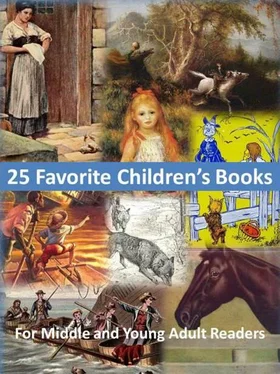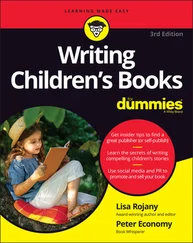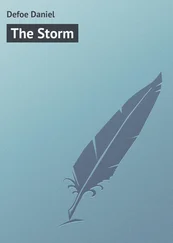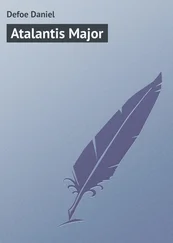Daniel Defoe - 25 Favorite Children's Books for Middle Readers
Здесь есть возможность читать онлайн «Daniel Defoe - 25 Favorite Children's Books for Middle Readers» весь текст электронной книги совершенно бесплатно (целиком полную версию без сокращений). В некоторых случаях можно слушать аудио, скачать через торрент в формате fb2 и присутствует краткое содержание. Год выпуска: 2011, Издательство: Smashbooks, Жанр: Классическая проза, на английском языке. Описание произведения, (предисловие) а так же отзывы посетителей доступны на портале библиотеки ЛибКат.
- Название:25 Favorite Children's Books for Middle Readers
- Автор:
- Издательство:Smashbooks
- Жанр:
- Год:2011
- ISBN:нет данных
- Рейтинг книги:5 / 5. Голосов: 1
-
Избранное:Добавить в избранное
- Отзывы:
-
Ваша оценка:
- 100
- 1
- 2
- 3
- 4
- 5
25 Favorite Children's Books for Middle Readers: краткое содержание, описание и аннотация
Предлагаем к чтению аннотацию, описание, краткое содержание или предисловие (зависит от того, что написал сам автор книги «25 Favorite Children's Books for Middle Readers»). Если вы не нашли необходимую информацию о книге — напишите в комментариях, мы постараемся отыскать её.
25 Favorite Children's Books for Middle Readers — читать онлайн бесплатно полную книгу (весь текст) целиком
Ниже представлен текст книги, разбитый по страницам. Система сохранения места последней прочитанной страницы, позволяет с удобством читать онлайн бесплатно книгу «25 Favorite Children's Books for Middle Readers», без необходимости каждый раз заново искать на чём Вы остановились. Поставьте закладку, и сможете в любой момент перейти на страницу, на которой закончили чтение.
Интервал:
Закладка:
John Pendleton rose abruptly—though he had but just come. His face was white, and his mouth was set into stern lines. Miss Polly, looking at him, knew very well why he felt that he could not stay longer in her presence. At the door he turned.
"I have a message for Pollyanna," he said. "Will you tell her, please, that I have seen Jimmy Bean and—that he's going to be my boy hereafter. Tell her I thought she would be—GLAD to know. I shall adopt him, probably."
For a brief moment Miss Polly lost her usual well-bred self-control.
"You will adopt Jimmy Bean!" she gasped.
The man lifted his chin a little.
"Yes. I think Pollyanna will understand. You will tell her I thought she would be—GLAD!"
"Why, of—of course," faltered Miss Polly.
"Thank you," bowed John Pendleton, as he turned to go.
In the middle of the floor Miss Polly stood, silent and amazed, still looking after the man who had just left her. Even yet she could scarcely believe what her ears had heard. John Pendleton ADOPT Jimmy Bean? John Pendleton, wealthy, independent, morose, reputed to be miserly and supremely selfish, to adopt a little boy—and such a little boy?
With a somewhat dazed face Miss Polly went up-stairs to Pollyanna's room.
"Pollyanna, I have a message for you from Mr. John Pendleton. He has just been here. He says to tell you he has taken Jimmy Bean for his little boy. He said he thought you'd be glad to know it."
Pollyanna's wistful little face flamed into sudden joy.
"Glad? GLAD? Well, I reckon I am glad! Oh, Aunt Polly, I've so wanted to find a place for Jimmy—and that's such a lovely place! Besides, I'm so glad for Mr. Pendleton, too. You see, now he'll have the child's presence."
"The—what?"
Pollyanna colored painfully. She had forgotten that she had never told her aunt of Mr. Pendleton's desire to adopt her—and certainly she would not wish to tell her now that she had ever thought for a minute of leaving her—this dear Aunt Polly!
"The child's presence," stammered Pollyanna, hastily. "Mr. Pendleton told me once, you see, that only a woman's hand and heart or a child's presence could make a—a home. And now he's got it—the child's presence."
"Oh, I—see," said Miss Polly very gently; and she did see—more than Pollyanna realized. She saw something of the pressure that was probably brought to bear on Pollyanna herself at the time John Pendleton was asking HER to be the "child's presence," which was to transform his great pile of gray stone into a home. "I see," she finished, her eyes stinging with sudden tears.
Pollyanna, fearful that her aunt might ask further embarrassing questions, hastened to lead the conversation away from the Pendleton house and its master.
"Dr. Chilton says so, too—that it takes a woman's hand and heart, or a child's presence, to make a home, you know," she remarked.
Miss Polly turned with a start.
"DR. CHILTON! How do you know—that?"
"He told me so. 'Twas when he said he lived in just rooms, you know—not a home."
Miss Polly did not answer. Her eyes were out the window.
"So I asked him why he didn't get 'em.—a woman's hand and heart, and have a home."
"Pollyanna!" Miss Polly had turned sharply. Her cheeks showed a sudden color.
"Well, I did. He looked so—so sorrowful."
"What did he—say?" Miss Polly asked the question as if in spite of some force within her that was urging her not to ask it.
"He didn't say anything for a minute; then he said very low that you couldn't always get 'em for the asking."
There was a brief silence. Miss Polly's eyes had turned again to the window. Her cheeks were still unnaturally pink.
Pollyanna sighed.
"He wants one, anyhow, I know, and I wish he could have one."
"Why, Pollyanna, HOW do you know?"
"Because, afterwards, on another day, he said something else. He said that low, too, but I heard him. He said that he'd give all the world if he did have one woman's hand and heart. Why, Aunt Polly, what's the matter?" Aunt Polly had risen hurriedly and gone to the window.
"Nothing, dear. I was changing the position of this prism," said Aunt Polly, whose whole face now was aflame.
CHAPTER XXVIII. THE GAME AND ITS PLAYERS
It was not long after John Pendleton's second visit that Milly Snow called one afternoon. Milly Snow had never before been to the Harrington homestead. She blushed and looked very embarrassed when Miss Polly entered the room.
"I—I came to inquire for the little girl," she stammered.
"You are very kind. She is about the same. How is your mother?" rejoined Miss Polly, wearily.
"That is what I came to tell you—that is, to ask you to tell Miss Pollyanna," hurried on the girl, breathlessly and incoherently. "We think it's—so awful—so perfectly awful that the little thing can't ever walk again; and after all she's done for us, too—for mother, you know, teaching her to play the game, and all that. And when we heard how now she couldn't play it herself—poor little dear! I'm sure I don't see how she CAN, either, in her condition!—but when we remembered all the things she'd said to us, we thought if she could only know what she HAD done for us, that it would HELP, you know, in her own case, about the game, because she could be glad—that is, a little glad—" Milly stopped helplessly, and seemed to be waiting for Miss Polly to speak.
Miss Polly had sat politely listening, but with a puzzled questioning in her eyes. Only about half of what had been said, had she understood. She was thinking now that she always had known that Milly Snow was "queer," but she had not supposed she was crazy. In no other way, however, could she account for this incoherent, illogical, unmeaning rush of words. When the pause came she filled it with a quiet:
"I don't think I quite understand, Milly. Just what is it that you want me to tell my niece?"
"Yes, that's it; I want you to tell her," answered the girl, feverishly. "Make her see what she's done for us. Of course she's SEEN some things, because she's been there, and she's known mother is different; but I want her to know HOW different she is—and me, too. I'm different. I've been trying to play it—the game—a little."
Miss Polly frowned. She would have asked what Milly meant by this "game," but there was no opportunity. Milly was rushing on again with nervous volubility.
"You know nothing was ever right before—for mother. She was always wanting 'em different. And, really, I don't know as one could blame her much—under the circumstances. But now she lets me keep the shades up, and she takes interest in things—how she looks, and her nightdress, and all that. And she's actually begun to knit little things—reins and baby blankets for fairs and hospitals. And she's so interested, and so GLAD to think she can do it!—and that was all Miss Pollyanna's doings, you know, 'cause she told mother she could be glad she'd got her hands and arms, anyway; and that made mother wonder right away why she didn't DO something with her hands and arms. And so she began to do something—to knit, you know. And you can't think what a different room it is now, what with the red and blue and yellow worsteds, and the prisms in the window that SHE gave her—why, it actually makes you feel BETTER just to go in there now; and before I used to dread it awfully, it was so dark and gloomy, and mother was so—so unhappy, you know.
"And so we want you to please tell Miss Pollyanna that we understand it's all because of her. And please say we're so glad we know her, that we thought, maybe if she knew it, it would make her a little glad that she knew us. And—and that's all," sighed Milly, rising hurriedly to her feet. "You'll tell her?"
"Why, of course," murmured Miss Polly, wondering just how much of this remarkable discourse she could remember to tell.
Читать дальшеИнтервал:
Закладка:
Похожие книги на «25 Favorite Children's Books for Middle Readers»
Представляем Вашему вниманию похожие книги на «25 Favorite Children's Books for Middle Readers» списком для выбора. Мы отобрали схожую по названию и смыслу литературу в надежде предоставить читателям больше вариантов отыскать новые, интересные, ещё непрочитанные произведения.
Обсуждение, отзывы о книге «25 Favorite Children's Books for Middle Readers» и просто собственные мнения читателей. Оставьте ваши комментарии, напишите, что Вы думаете о произведении, его смысле или главных героях. Укажите что конкретно понравилось, а что нет, и почему Вы так считаете.











